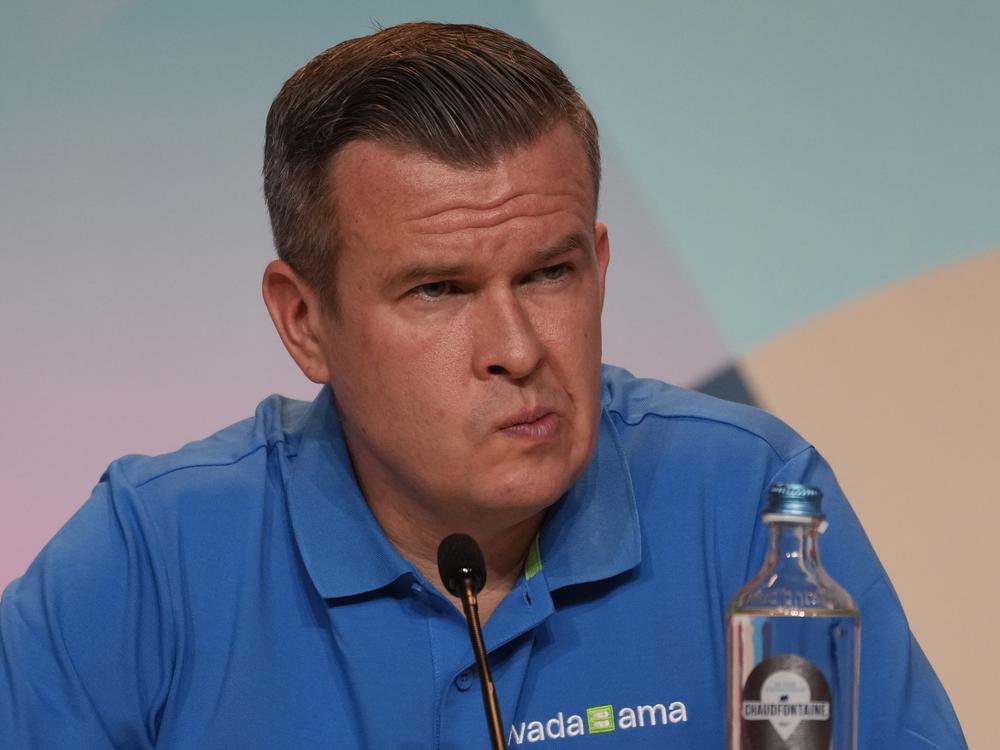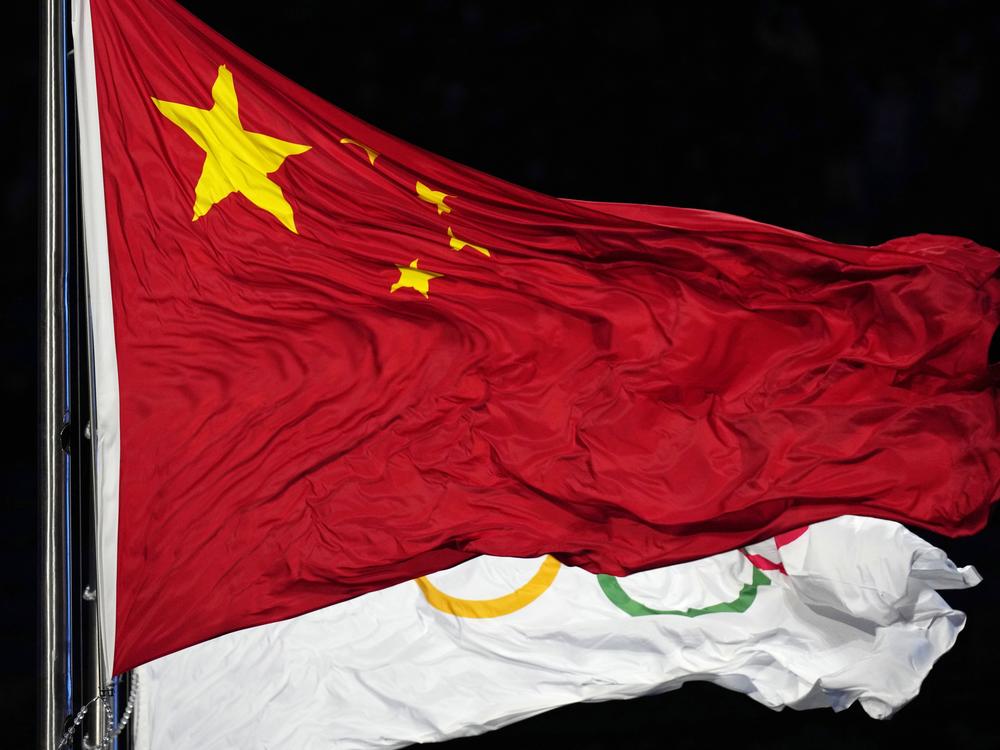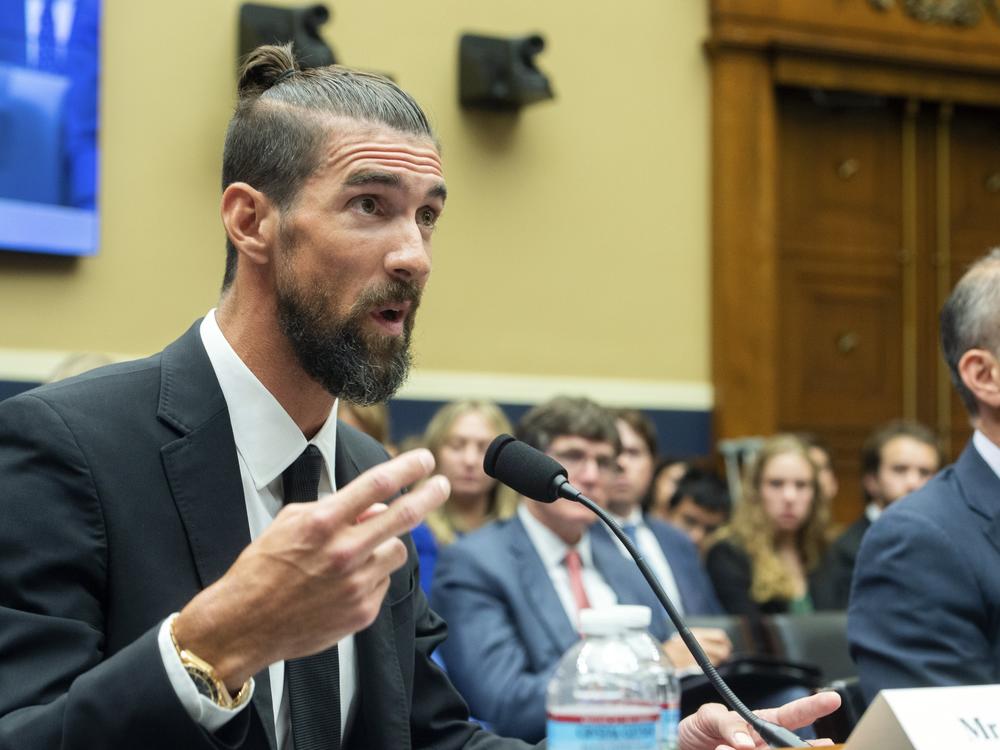Section Branding
Header Content
U.S. lawmakers threaten funding for sport doping program over China Olympic scandal
Primary Content
PARIS — A bipartisan group of U.S. lawmakers on Tuesday introduced a bill that would cut future American funding for the global sports anti-doping system unless sweeping reforms are made.
The World Anti-Doping Agency (WADA) receives $3.7 million a year in U.S. funding. The organization faces growing criticism for its handling of a case involving 23 Chinese swimmers.
"I think WADA looks really bad here, I don't think their position is sustainable," said Sen. Chris Van Hollen (D-Md.), one of the bill's co-sponsors.
'WADA unfortunately failed to do its job."
WADA officials now acknowledge they learned of the positive doping tests in 2021 ahead of the Tokyo Summer Games.
They accepted China's explanation that the athletes ingested banned substances accidentally. No independent investigation was conducted.
The doping watchdog organization then kept the matter secret until it was revealed in April of this year by the New York Times.
The Times has subsequently reported two other instances of positive sports doping tests involving Chinese swimmers that were never made public by WADA.
Senator Marsha Blackburn (R-Tenn.) said her office attempted to communicate directly with WADA officials, demanding an explanation of their handling of the drug tests.
"Instead of working with us to insure an even playing field, WADA has worked against us at every turn," Blackburn said.
The measure, if passed would allow the White House to withhold money — roughly 8% of WADA's $46 million annual budget — unless reforms are made.
Lawmakers at the press conference noted the head of the U.S. Office of National Drug Control Policy, Dr. Rahul Gupta, sits on WADA's executive committee, but was kept in the dark about the China case until shortly before news of the scandal broke.
"When there's a coverup, that's a huge problem," said Rep. John Moolenaar (R-Mich.). "We're bringing things to light."
Eleven Chinese athletes implicated in the case are scheduled to compete at the Paris Summer Olympics.
"Gold medal in blackmail"
Tuesday's press conference was a clear signal from American lawmakers they're not daunted by threats by the International Olympic Committee.
Last week, the IOC warned it might withdraw the granting of the 2034 Winter Olympics to Salt Lake City, Utah, if the United States continues to pursue multiple probes into WADA's operations.
Speaking in Paris, the head of WADA Witold Banka supported the IOC's move and described U.S. concerns as part of a power play designed to give American officials more clout.
"It’s highly incorrect that one country try to impose jurisdiction on antidoping decisions on the rest of the world," Banka said.
On Tuesday, Rep. Moolenaar called the IOC's threats over the Salt Lake Games "the gold medal in blackmail."
Sen. Blackburn also blasted international sports officials for trying to "strongarm the U.S. into dropping an FBI investigation into the doping scandal."
"Our message is simple, we will not be silenced for trying to promote fair play," she said.
A sports scandal tangled up in fraying U.S.-China relationship
This doping scandal is playing out while Olympic athletes are competing in Paris. It's also unfolding against a backdrop of growing distrust between the U.S. and China.
U.S. lawmakers today repeatedly suggested that China is wielding improper influence over WADA.
"I feel like that threat [to cancel the Salt Lake City Winter Olympics] was written in Beijing," said Rep. Raja Krishnamoorthi (D-Ill.).
"While we might not be able to bring the (Chinese Communist Party) officials responsible...we can hold their foreign co-conspirators accountable," said Rep. Moolenaar.
Travis Tygart, head of the U.S. Anti-Doping Agency, the sports-doping group that monitors American athletes, said in an interview Tuesday that he too believes Chinese officials are influencing WADA inappropriately.
"Why is China being given special treatment?" Tygart said. "Why doesn't China have to announce these cases as every other country has done? Even if it is accidental contamination, why doesn't WADA investigate?"
WADA officials have rejected these accusations and say they handled the Chinese doping cases appropriately. Chinese athletes competing in Paris also denied taking performance-enhancing drugs.
"Our Chinese government on our team always tells us we have the clean model and the clean results and our results right now are based on hard work and training," Chinese freestyle swimmer Fei Liwei told reporters on Saturday.
U.S. athletes, however, have voiced anger and distrust over WADA's handling of the case. Speaking at a House hearing last month, retired Olympic swimmer Michael Phelps said eroding trust in the anti-doping system could cripple the Olympic movement.
"If we continue to let this slide any farther, the Olympic games might not even be there," Phelps testified.



